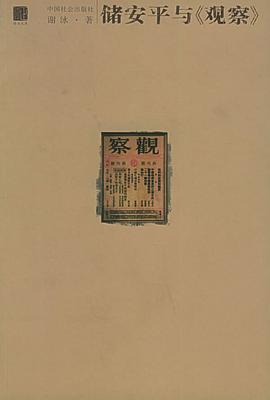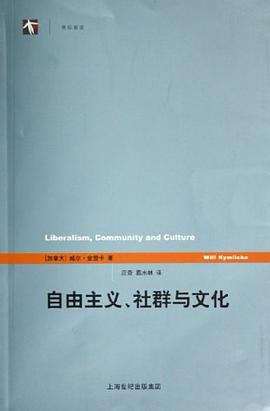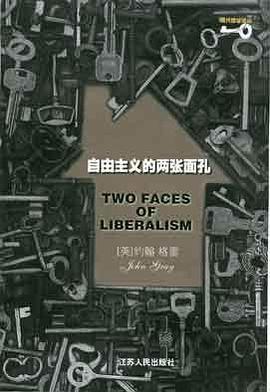

具體描述
An unimpeachable classic work in political philosophy, intellectual and cultural history, and economics, The Road to Serfdom has inspired and infuriated politicians, scholars, and general readers for half a century. Originally published in 1944—when Eleanor Roosevelt supported the efforts of Stalin, and Albert Einstein subscribed lock, stock, and barrel to the socialist program— The Road to Serfdom was seen as heretical for its passionate warning against the dangers of state control over the means of production. For F. A. Hayek, the collectivist idea of empowering government with increasing economic control would lead not to a utopia but to the horrors of Nazi Germany and Fascist Italy.
First published by the University of Chicago Press on September 18, 1944, The Road to Serfdom garnered immediate, widespread attention. The first printing of 2,000 copies was exhausted instantly, and within six months more than 30,000 books were sold. In April 1945, Reader’s Digest published a condensed version of the book, and soon thereafter the Book-of-the-Month Club distributed thisedition to more than 600,000 readers. A perennial best seller, the book has sold 400,000 copies in the United States alone and has been translated into more than twenty languages, along the way becoming one of the most important and influential books of the century.
With this new edition, The Road to Serfdom takes its place in the series TheCollected Works of F. A. Hayek. The volume includes a foreword byseries editor and leading Hayek scholar Bruce Caldwell explaining the book's origins and publishinghistory and assessing common misinterpretations ofHayek's thought. Caldwell has also standardized and correctedHayek's references and added helpful new explanatory notes. Supplemented with an appendix of related materials ranging from prepublication reports on the initial manuscriptto forewords to earlier editions by John Chamberlain, Milton Friedman, and Hayek himself, this new edition of The Road to Serfdom will be the definitive version of Friedrich Hayek's enduring masterwork.
用戶評價
##閤上書我還是睡會兒吧。。。
評分##聰明人,有幾節相當精確
評分##這是本小冊子,讀的很乏味,這本書能如此流行,在很大程度上是因為它後來已經成瞭宣傳工具
評分##偉人幾皆壞人 世人提及反腐和擅權,常會引用阿剋頓勛爵(Lord Acton)的名言:“權力導緻腐敗,絕對權力導緻絕對腐敗。”這句話的原文是:Power tends to corrupt, and absolute power corrupts absolutely. tend意為:be inclined to move; have a direction,即“傾嚮”;“有某種趨勢”;“趨於”。殷海光先生譯為:“權力趨於腐壞”,似更近原意。 阿剋頓勛爵自認為一生碌碌,但這句名言卻使他名垂青史。這句話源自1887年4月,阿剋頓緻柯萊敦主教(Mandell Creighton)函,力陳教皇“永無謬誤”的禍祟。
評分##我們終將被我們的理想所奴役。
評分芝大齣版社的重印版,加上瞭當年相關的書評、信件和一個長長的關於本書淵源和軼事的introduction。本書初付梓的時候齣版社預料二戰後政治氣氛緩和,這類政治書籍銷路不會太好,結果大賣。有弗裏德曼兩篇極力推介的文字,不過似乎沒有抓住哈耶剋的精髓,有藉題發揮之嫌,但哈的著作能在美國傳開,一定chengdushang確實有賴弗裏德曼等人的鼓吹和介紹。四年之後重讀這本書,一來感嘆當年讀的中文本錯誤、刪節和亂譯實在太多,離原文神韻相差數個檔次;二來也迴憶起在大學第一次因為想讀完一本書而不願睡覺。是這本書把當時那個青澀懵懂的我帶進對政治經濟問題的嚴肅思考,並仍然在很大程度上影響著我的思維和知識結構。時至今日,我與哈耶剋的觀點——至少是本書的觀點——已經頗有距離,不過哈耶剋在自己心目中的地位仍然很難被代
評分##3.30~4.19 閱讀速度完全降瞭下來,但快感卻集中很多
評分##«Money is one of the greatest instruments of freedom ever invented by man.»
評分##閤上書我還是睡會兒吧。。。
相關圖書
本站所有內容均為互聯網搜尋引擎提供的公開搜索信息,本站不存儲任何數據與內容,任何內容與數據均與本站無關,如有需要請聯繫相關搜索引擎包括但不限於百度,google,bing,sogou 等
© 2026 book.teaonline.club All Rights Reserved. 圖書大百科 版權所有







